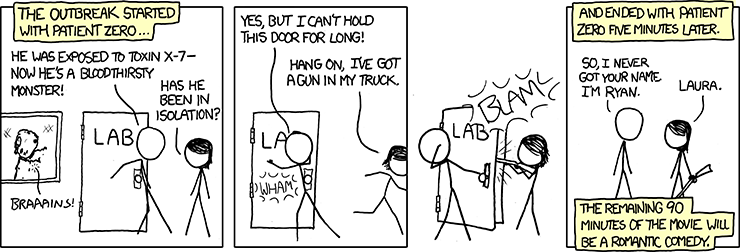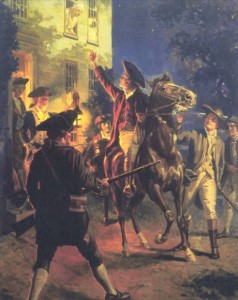Sometime this spring, the U.S. Supreme Court will decide whether the Second Amendment to the Constitution applies to state and local governments. Many enthusiasts of gun rights might still be surprised to learn that the Second Amendment has never applied to state and local governments. It has protected, at least recently, the right to keep and bear arms against infringements by only the federal government and its enclaves, like the District of Columbia.
Actually, none of the Bill of Rights applies to the states, but the Supreme Court has decided that many of the rights it provides are protected by the Due Process Clause of the Fourteenth Amendment (“nor shall any State deprive any person of life, liberty, or property, without due process of law”), which does apply to the states. Advocates of gun rights are very interested in whether the Court will incorporate the right to keep and bear arms into the Fourteenth Amendment. But many conservative legal activists and academics are more interested in whether a different clause of the Fourteenth Amendment is used for that purpose. In their view, the framers of the Fourteenth Amendment intended that the Privileges or Immunities Clause of the Fourteenth Amendment (“No state shall make or enforce any law which shall abridge the privileges or immunities of citizens of the United States”) would protect substantive rights while the Due Process Clause, as its name implies, would protect procedural rights. The gun control case that the Supreme Court is about to decide, McDonald v. City of Chicago, is seen as an opportunity to right an historical wrong, and so much more.
In some circles, it is an article of faith (and partly superstition) that the Privileges or Immunities Clause was fatally misinterpreted at the outset by the Slaughter-House Cases and if only that case could be overturned economic liberties, which the Supreme Court has ignored since the New Deal, could enjoy a new springtime under a reborn Privileges or Immunities Clause.
The Supreme Court’s 1873 decision in the Slaughter-House Cases was the first time the Court interpreted the Fourteenth Amendment, which had been ratified just five years before. In that case the Court decided that an amendment whose purpose was “the freedom of the slave race [and] the security and firm establishment of that freedom” did not prevent the state of Louisiana from requiring New Orleans butchers to slaughter livestock at a location downriver from the city. The Court said that the Privileges or Immunities Clause protected only rights of national citizenship, which did not include the right to butcher animals anywhere in New Orleans free of regulation. The examples the Court then gave of what were rights of national citizenship weren’t very helpful; the only one that has had any practical use has been the right to travel interstate.
As a result, the Privileges or Immunities Clause is the last frontier of the Constitution. Conservatives as well as liberals have been eager to open it up for the cultivation of new rights—and old ones. The libertarian Institute for Justice, which filed an amicus brief in McDonald, had previously tried without success to get the Slaughter-House Cases reversed in a series of cases in which they argued that the Privileges or Immunities Clause protected a right to earn a living. (I represented their opponent in one of them.)
This time the right to keep and bear arms is the vehicle, but the objective of eventually regaining protection for economic liberties seems to be the same. Alan Gura, counsel for the petitioner in McDonald, hinted at that objective in his brief by complaining that “[s]tate violations of rights understood and intended by the ratifying public to receive significant Fourteenth Amendment protection are not meaningfully secured by federal courts.” At oral argument, the justices struggled to get Gura to divulge what those insecure rights might be. Finally, at the very end of the argument Justice Alito got him to admit that they included the right to contract.
A remark by Justice Thomas in an earlier case encouraged this Privileges or Immunities project, but he has also said that while the clause should be reconsidered it shouldn’t be used expansively. There didn’t seem to be any other enthusiasm for the Privileges or Immunities project on the bench during oral argument. Justice Scalia said to Gura, “what you argue is the darling of the professoriate, for sure, but it’s also contrary to 140 years of our jurisprudence.”
If the Supreme Court does incorporate the Second Amendment, I suspect it will do it the old-fashioned way and leave the Privileges or Immunities Clause and the Slaughter-House Cases in peace. That is probably just as well given that the Supreme Court and the lower federal courts will soon be getting more Obama appointees who may be expected to have designs of their own for the Privileges or Immunities Clause. There is no reason to believe that the federal judiciary will be any more protective of economic liberties and property rights under the opaque Privileges or Immunities Clause than it has been under the Due Process, Takings, and Contracts Clauses, which actually contain the words property, liberty, and contract.
Reviving the Privileges or Immunities Clause has intellectual and historical appeal, but it is no substitute for the harder task of convincing judges and the politicians who select them that property rights are human rights.

